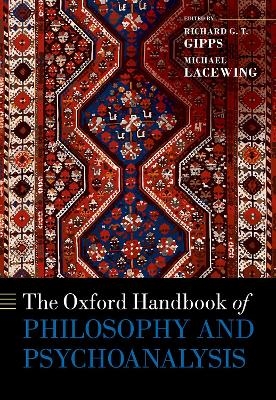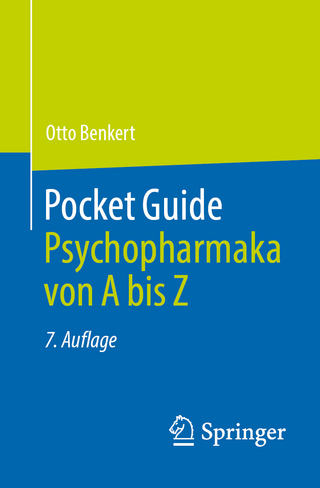
The Oxford Handbook of Philosophy and Psychoanalysis
Oxford University Press (Verlag)
978-0-19-878970-3 (ISBN)
Psychoanalysis is often equated with Sigmund Freud, but this comparison ignores the wide range of clinical practices, observational methods, general theories, and cross-pollinations with other disciplines that characterise contemporary psychoanalytic work. Central psychoanalytic concepts to do with unconscious motivation, primitive forms of thought, defence mechanisms, and transference form a mainstay of today's richly textured contemporary clinical psychological practice.
In this landmark collection on philosophy and psychoanalysis, leading researchers provide an evaluative overview of current thinking. Written at the interface between these two disciplines, The Oxford Handbook of Philosophy and Psychoanalysis contains original contributions that will shape the future of debate. With 34 chapters divided into eight sections covering history, clinical theory, phenomenology, science, aesthetics, religion, ethics, and political and social theory, this Oxford Handbook displays the enduring depth, breadth, and promise of integrating philosophical and psychoanalytic thought.
Anyone interested in the philosophical implications of psychoanalysis, as well as philosophical challenges to and re-statements of psychoanalysis, will want to consult this book. It will be a vital resource for academic researchers, psychoanalysts and other mental health professionals, graduates, and trainees.
Dr Richard Gipps is a clinical psychologist in private psychotherapy practice in Oxford, UK, and an associate of the Philosophy Faculty at the University of Oxford. He convenes the Philosophy Special Interest Group of the Institute of Psychoanalysis, the Oxford Interdisciplinary Seminars in Psychoanalysis, and the Making the Unconscious Conscious seminar series. His research interests lie in psychoanalysis, psychosis, existential phenomenology, and Wittgenstein. Dr Michael Lacewing is a former Vice-Principal Academic and Reader in Philosophy at Heythrop College, London, an Honorary Reader in Research Department of Clinical, Educational and Health Psychology at University College, London, and a teacher of philosophy and theology at Christ's Hospital School, Sussex. He has published widely in philosophy of psychoanalysis, metaethics and moral psychology, alongside writing textbooks for A level philosophy and training in Philosophy for Children (P4C).
1: Richard Gipps and Michael Lacewing: Introduction: Know Thyself
I. Intellectual Pre-History
2: Richard Gipps and Michael Lacewing: Intellectual Pre-History: Introduction
3: Sebastian Gardner: Psychoanalytic Theory: A Historical Reconstruction
4: Molly Macdonald: From Recognition to Intersubjectivity: Hegel and Psychoanalysis
5: Andrew Brook and Christopher Young: Schopenhauer and Freud
6: Stella Sandford: From Geschlechtstrieb to Sexualtrieb: The Originality of Freud's Conception of Sexuality
7: Ken Gemes: A Better Self: Freud and Nietzsche on the Nature and Value of Sublimation
II. 20th Century Engagements
8: Richard Gipps and Michael Lacewing: Twentieth Century Engagements: Introduction
9: James Phillips: Merleau-Ponty and Psychoanalysis
10: Donald Levy: Wittgenstein and Psychoanalysis
11: Martin Jay: "In Psychoanalysis Nothing is True but the Exaggerations": Freud and the Frankfurt School
12: Richard Bernstein: Ricoeur's Freud
III. Clinical Theory
13: Richard Gipps and Michael Lacewing: Clinical Theory: Introduction
14: Jonathan Lear: Imagination and Reason, Method and Mourning in Freudian Psychoanalysis
15: Judith Hughes: "A Ritual of Discourse": Conceptualizing and Re-conceptualizing the Analytic Relationship
16: Agnes Petocz: 1. Symbolism, the primary process, and dreams: Freud's contribution
17: Tamas Pataki: Wishfulfilment
18: Adam Leite: Integrating Unconscious Belief
19: David Finkelstein: Making the Unconscious Conscious
IV. Phenomenology and Science
20: Richard Gipps and Michael Lacewing: Phenomenology and Science: Introduction
21: Morris Eagle: Complexities in the Evaluation of the Scientific Status of Psychoanalysis
22: Jim Hopkins: Psychoanalysis and Neuroscience
23: Michael Lacewing: How Should We Understand the Psychoanalytic Unconscious?
24: Richard Gipps: A New Kind of Song: Psychoanalysis as Revelation
25: Thomas Fuchs: Body Memory and the Unconscious
V. Aesthetics
26: Michael Lacewing and Richard Gipps: Aesthetics: Introduction
27: Damien Freeman: On Richard Wollheim's psychoanalytically informed philosophy of art
28: Elisa Galgut: Literary Form and Mentalization
29: Damian Cox and Michael Levine: Psychoanalysis and Film
VI. Religion
30: Michael Lacewing and Richard Gipps: Religion: Introduction
31: John Cottingham: Psychoanalysis and Religion
32: Rachel Blass: Psychoanalytic Thinking on Religious Truth and Conviction
33: Richard Boothby: The No-Thing of God: Psychoanalysis of Religion After Lacan
VII. Ethics
34: Michael Lacewing and Richard Gipps: Ethics: Introduction
35: Joel Backström: Hiding from Love: The Repressed Insight in Freud's Account of Morality
36: Edward Harcourt: Human Excellence and Psychic Health in Psychoanalysis
37: Darcia Narvaez: Evolution, Childhood and the Moral Self
VIII. Politics and Society
38: Michael Lacewing and Richard Gipps: Politics and Society: Introduction
39: Stephen Frosh: Psychoanalysis, Politics and Society: What Remains Radical in Psychoanalysis?
40: Michael Rustin: Epistemic Anxiety
41: Louise Gyler: Psychoanalysis in the 21st Century: Does Gender Matter?
42: Judith Butler: 1. Political Philosophy in Freud: War, Destruction, and the Critical Faculty
| Erscheinungsdatum | 18.04.2019 |
|---|---|
| Reihe/Serie | Oxford Handbooks |
| Verlagsort | Oxford |
| Sprache | englisch |
| Maße | 180 x 254 mm |
| Gewicht | 1374 g |
| Themenwelt | Geisteswissenschaften ► Philosophie |
| Geisteswissenschaften ► Psychologie ► Klinische Psychologie | |
| Geisteswissenschaften ► Psychologie ► Psychoanalyse / Tiefenpsychologie | |
| Medizin / Pharmazie ► Medizinische Fachgebiete ► Psychiatrie / Psychotherapie | |
| ISBN-10 | 0-19-878970-X / 019878970X |
| ISBN-13 | 978-0-19-878970-3 / 9780198789703 |
| Zustand | Neuware |
| Informationen gemäß Produktsicherheitsverordnung (GPSR) | |
| Haben Sie eine Frage zum Produkt? |
aus dem Bereich


